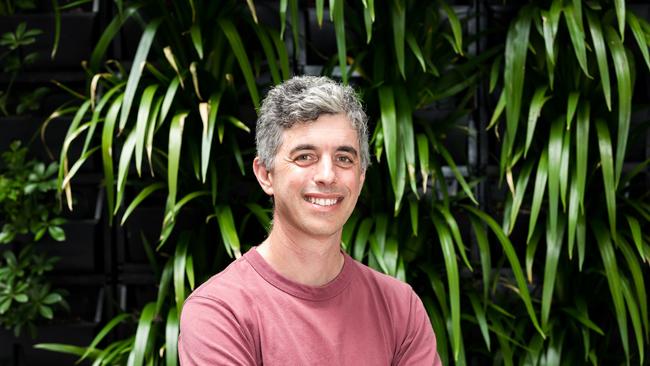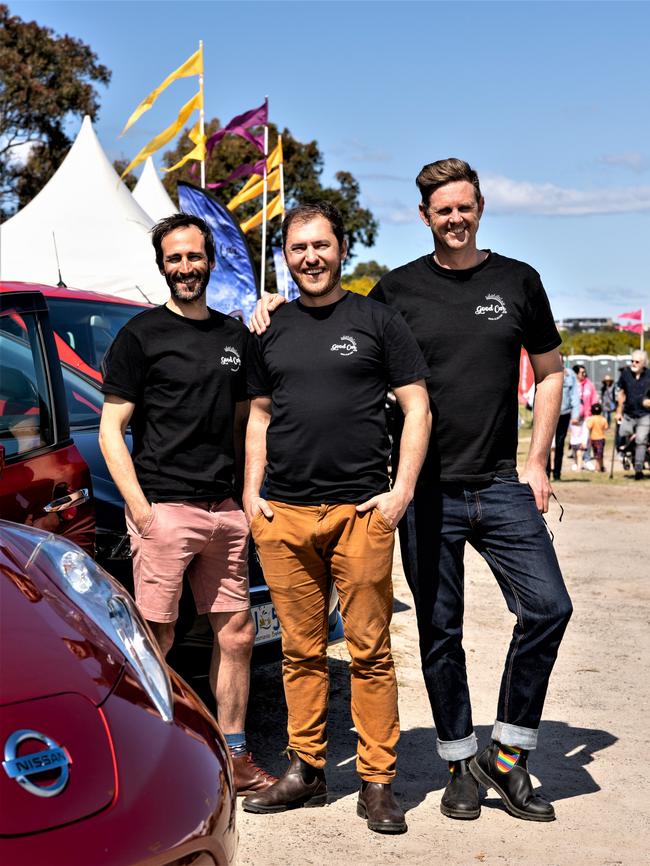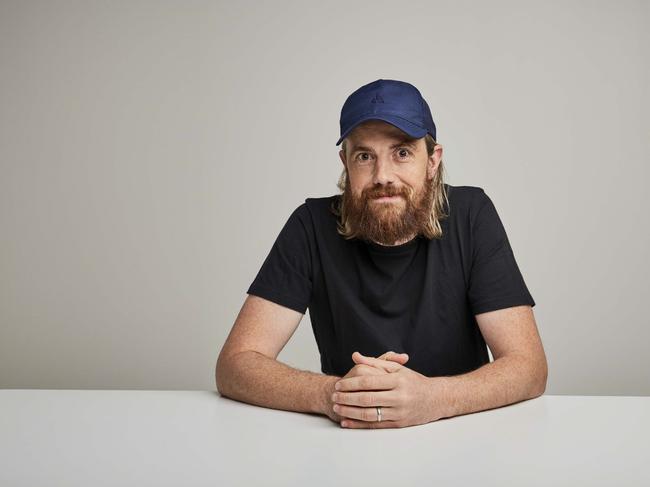Tech billionaires Mike Cannon-Brookes and Cameron Adams rev up second-hand EV start-up
Mike Cannon-Brookes and Canva billionaire Cameron Adams are backing this start-up aiming to get thousands more electric vehicles onto Australian roads.

Atlassian co-founder and tech billionaire Mike Cannon-Brookes’ philanthropic green energy fund Boundless has made its first investment, joining Canva co-founder and fellow rich lister Cameron Adams in pouring $10m into The Good Car Company, a second-hand car marketplace for electric vehicles.
The Good Car Company, which is based in Tasmania and is Australia’s largest importer of second-hand EVs, is tackling what its co-founder Anthony Brose van Groenou describes as the two biggest barriers to local electric vehicle adoption – supply and affordability.
“Australia is comparatively underserved by availability and affordability of electric vehicles,” Mr van Groenou said.
“We delivered Australia’s first community EV bulk buy in 2019 and every year we witness more and more people wanting to transition to EVs and the opportunities they unlock.

“And it’s amazing to have two of the biggest and most successful tech companies in Australia backing us, I’m pinching myself.”
The investment will boost the number of affordable second-hand EVs The Good Car Company imports into Australia by tenfold per year, from about 200 to 2000. The start-up is importing pre-owned and new EVs from the UK and Japan to accelerate Australia’s EV uptake, a plan Mr van Groenou said would reduce the nation’s carbon emissions by thousands of tonnes.
The cars, which include the Nissan Leaf, Nissan eNV200 electric van and Peugeot e-expert van, will come with consumer protections including battery warranty and roadside assist, and will help expand the number of EVs available in Australia from a handful of models to eventually hundreds.
“We’re doing this as a means to an end,” Mr van Groenou said. “It’s kind of like a trojan horse, the electric vehicles, which will open up so much more than just that. It’s an inevitability that we’re going to have electrified transport, which is batteries on wheels, and there’s a whole raft of other things that tie into decarbonising our economy that we’ll then be able to do.”
He said Australia’s lack of a fuel efficiency standard was hurting EV adoption. In New Zealand, fuel efficiency standards saw the country’s electric vehicle adoption rise from 3 per cent to 10 per cent in just over a year.
The Good Car Company will sell the cars starting at $20,000 but will eventually offer them via a subscription platform, to help ease cost of living pressures for consumers. Vehicles will also be available through a series of community-based “bulk buy” campaigns around the country.

Boundless organised August’s National EV Summit in Canberra, and was formed out of a $1.5bn pledge by Mike Cannon-Brookes and his wife Annie towards a goal of cutting Australia’s carbon emissions and helping turn the nation in to a “renewable energy superpower”.
“At Boundless, our investments, initiatives, and partnerships are focused on ensuring Australia becomes a renewable energy superpower by 2030. With transport accounting for 18 per cent of Australia’s emissions, we knew our first priority had to be bridging the growing gap between demand for EVs among Australians and the supply available within an attainable price point,” said CEO Eytan Lenko, a former software engineer.
“The Good Car Company is a perfect fit, and we’ve been impressed by their continued advocacy towards investment in the EV industry as a whole. Boundless funding will help The Good Car Company increase their supply of affordable EVs by a factor of 10 and put them in a great position to catalyse further capital.”
Canva co-founder Cameron Adams and his wife Lisa Miller have also committed funds towards the company.
“It was incredibly exciting to meet a trio of entrepreneurs tackling climate change and electrification in our own backyard, and we have been enthusiastic supporters ever since,” Mr Adams said.
“The Good Car Company’s commitment towards action and changing the current state of play one car at a time is exactly what Australia needs right now.”



To join the conversation, please log in. Don't have an account? Register
Join the conversation, you are commenting as Logout